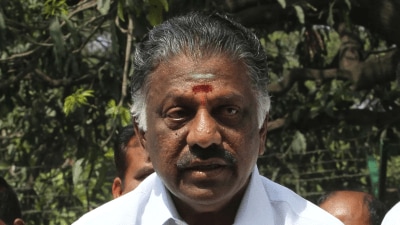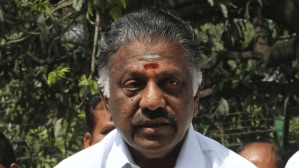Delhi Cabinet approves draft Bill to regulate fees in private schools
Delhi Private School Fee Hike: The draft Bill to regulate fees in private and government schools in Delhi came after protests by parents against the schools raising fees.
 The Delhi chief minister said there were complaints, and the parents were in panic due to the fee hikes. (Express Photo)
The Delhi chief minister said there were complaints, and the parents were in panic due to the fee hikes. (Express Photo)Delhi Cabinet Fee Decision News: Schools in Delhi will not be allowed to increase fees without clearance from government-mandated committees, according to a draft Bill passed by the Delhi Cabinet on Tuesday.
The Cabinet approved the draft of the Delhi School Education (Transparency in Fixation and Regulation of Fees) Bill, 2025 to regulate fees in private and government-aided private schools.
The move follows sustained protests by parents against fee hikes over the past several months in schools across the city.
Addressing a press conference, Delhi Chief Minister Rekha Gupta said, “We have passed a draft Bill in the Cabinet meeting, applicable to all 1,677 aided and unaided private schools, to fix guidelines and procedures for fee hikes.” She said schools found violating the guidelines will face a penalty of up to Rs 10 lakh.
According to the draft Bill, committees will be formed at three levels to address fee hike issues.
The Chief Minister said the school-level fee regulation committee will comprise six members from a school, including the principal and three teachers; five parents/guardians and a nominee from the Directorate of Education. These five parents (two women and a parent from reserved category) will be selected by the Parent Teacher Association through a draw of lot. This committee will be responsible for decisions related to fee hikes or any other related issues at the school-level.
The district-level committee will have seven members, and will hear appeals from schools or parents against decisions made by the school-level committee. This committee will review appeals regarding fee determination at the district level and submit its report within 30-45 days. If the appellant is not satisfied with the district committee’s decision, the matter will be sent to the state-level committee, said Education Minister Ashish Sood.
The state-level committee will be the final appellate authority, which will make decisions binding for three academic years. This committee will review decisions made by the district-level committees and issue final rulings.
Sources said the factors for determination of fee will be the location of the school, education standard of the school as prescribed by the government, the infrastructure and facilities provided by the school, expenditure on maintenance determined by the government, excess funds generated from NRIs or as part of charity, salary of teachers as well as revenue surplus.
“The school-level committees will be formed by July 31 to discuss the fee hikes for the next academic year. They have to submit a report within 30 days and if they don’t submit the report, the district-level committee will have to speak to parents and give its report… If the parents do not agree with the committee’s proposal, it will be sent to the state-level committee, which will review and give its decision… Even after approval from the state-level committee, if at least 15 per cent of the parents are against the fee-hike proposal, they can file an appeal,” Sood said.
The issue of school fee hikes in Delhi has been brought before the courts several times. In April 2024, the Delhi High Court stayed an order passed by the Delhi government which said that schools built on land granted by it will have to seek its nod before raising fees.
Chief Minister Gupta said the decision to bring in the Bill was because of complaints and panic among parents due to fee hikes. “Several parents complained that the school administrations were pressuring their children in school over fees. We sent District Magistrates to conduct a detailed study, understand how the fees were hiked in schools, and what the procedures were to regulate fees. We found that no previous government took any steps to regulate fee hikes,” she said.
The government also examined laws on fees regulation passed by states like Haryana and Maharashtra.
The Directorate of Education had said earlier this month that it has initiated a probe against private unaided schools that are “illegally hiking” fees, and the action would include de-recognition and possible takeover of school managements.
“This Bill is going to be a lifeline for parents because now they will have decision-making power. Once this law is enacted, by October, parents will be able to decide clearly whether to keep their children in the same school or explore other options. They will no longer need to beg for assistance or solutions,” Gupta said.
Sood said schools cannot take any coercive steps against students, such as making them sit in a library instead of attending classes. “Schools violating this will be slapped with a fine of Rs 50,000 per student complaint. The fine will be doubled if the school does not submit it within 20 days. All these processes are time-bound… If the school does not take a decision in the given time period, it will automatically go to district and state level committees…,” he said.
The CM Office said that as of April 28, inspections have been conducted in 970 schools in Delhi, and notices have been issued to over 150 schools for complaints regarding fee hikes.












